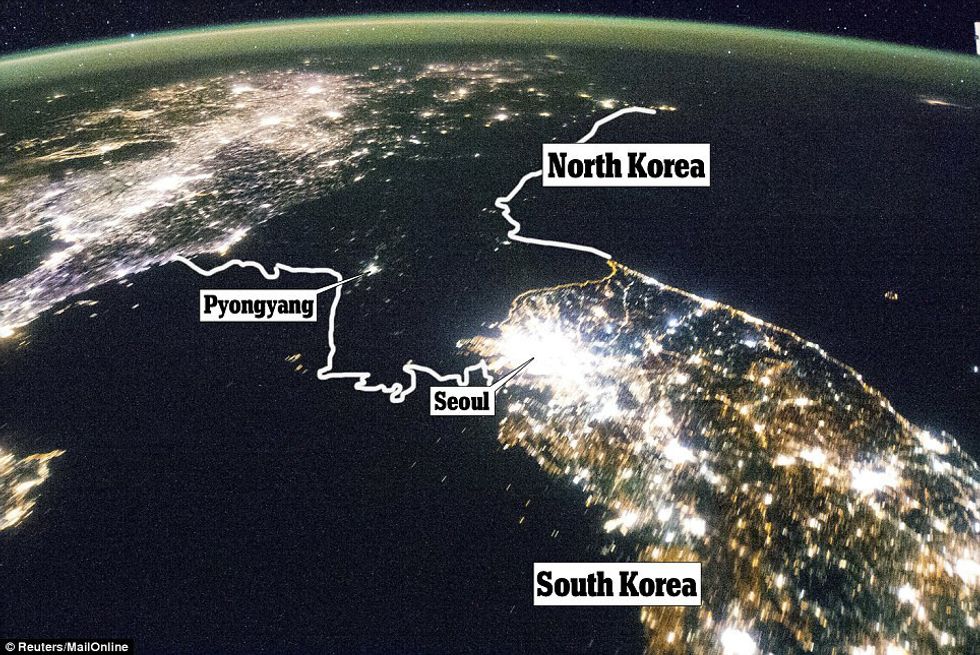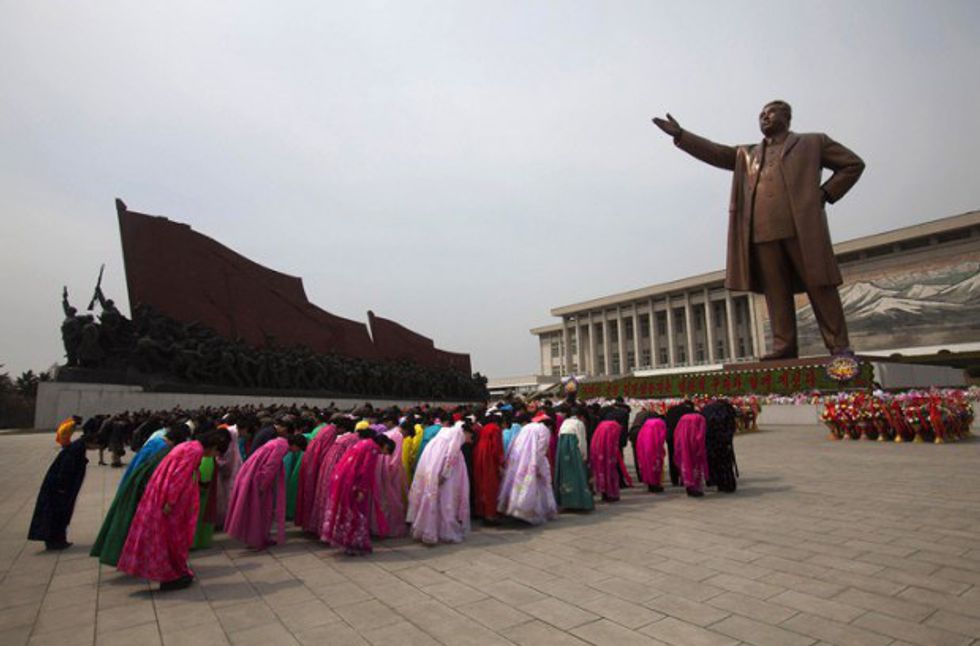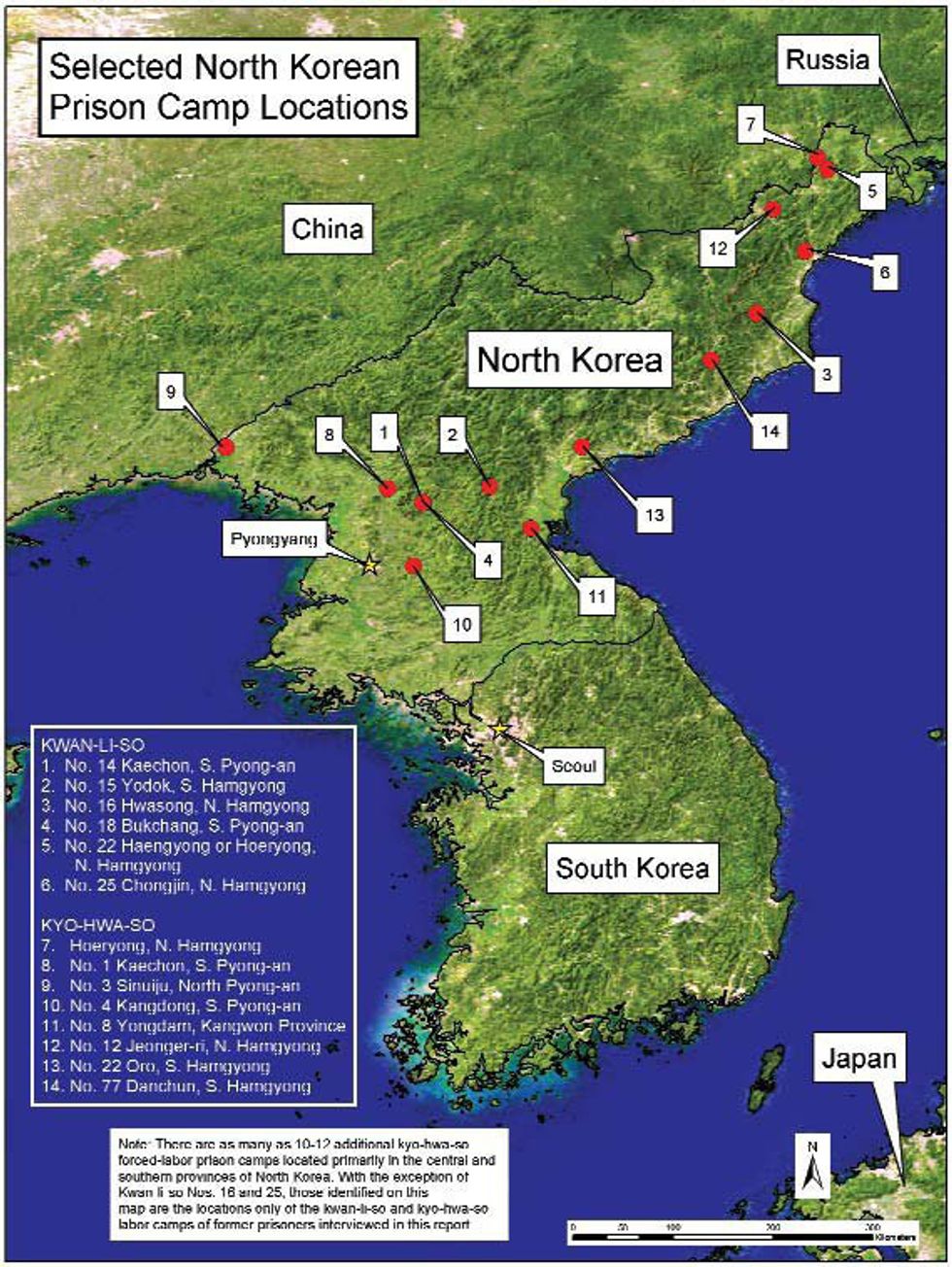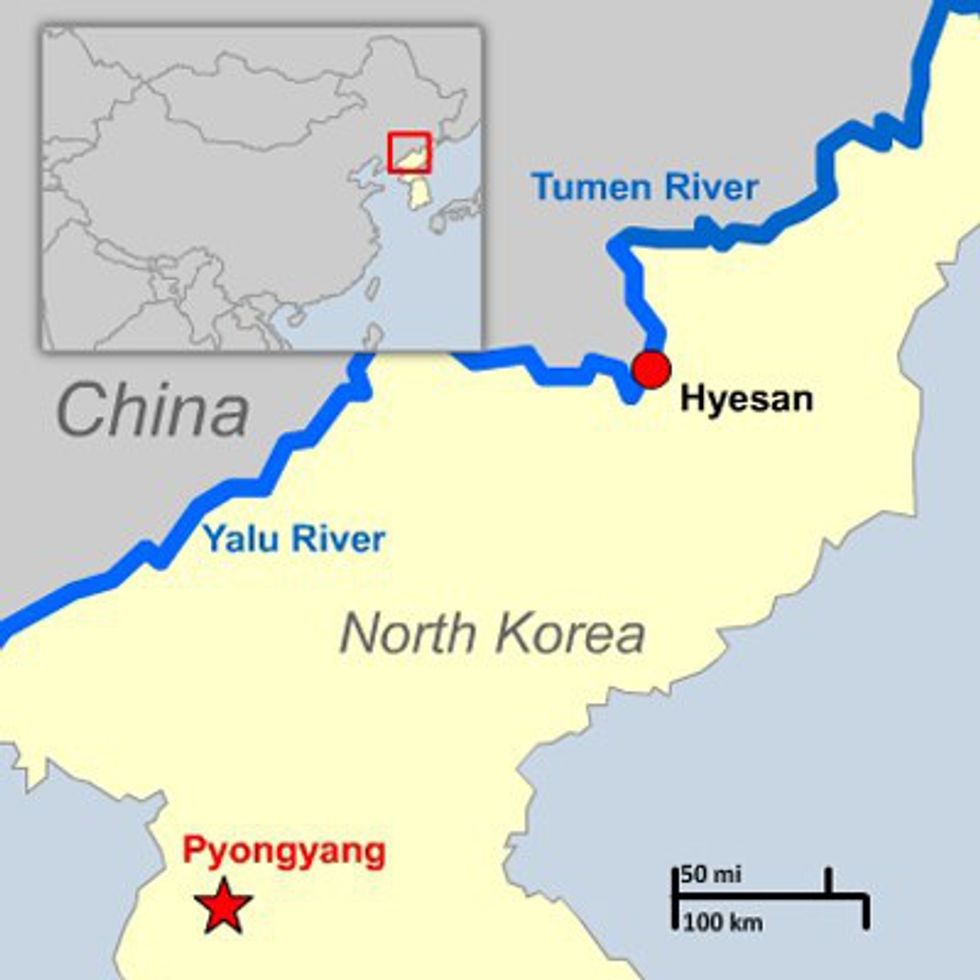Since my visit to South Korea in the summer of 2014, I’ve been burdened with the knowledge that so close to the beautiful metropolis of Seoul there are millions of people living in suffering and poverty. While attending a program at Seoul Women’s University, I was able to visit the Demilitarized Zone which separates South Korea from its neighbor to the North.
The observation points on the edge of the DMZ provide an ominous view of the barren landscape of North Korea, the world’s most oppressive, secretive and inhumane regime. It’s a sobering thought that beyond the lights of Seoul, one of the most modern and exciting cities in the world, lies a country shrouded in literal and figurative darkness. Satellite pictures reveal the total darkness of North Korea at night, sharply contrasted with the bright electric lights of South Korea and China. You can see the borders of North Korea with shocking clarity, the only small break in the dark expanse being the capital city of Pyongyang. This reveals the true situation of the North Korean people, with most citizens at worse receiving no electricity and at best experiencing frequent, unpredictable power outages.
These images also showcase the stark reality of life in North Korea -- even when the world is given a glimpse of daily life in Pyongyang, it in no way represents the living conditions in the rest of the country. In the 1990's, when the economy collapsed after the fall of the Soviet Union, North Korea entered a period of devastating famine which it still hasn’t recovered from. The aid money the nation receives is spent financing leader Kim Jong-un's expensive taste in luxury goods and supporting extensive military programs, instead of providing food to its millions of starving citizens.
When foreigners visit North Korea, their every move is followed by government agents. The footage captured by film crews is carefully analyzed every day by state employees, so even the rare glimpses the outside world gets into this nation will only show what the government wants audiences to see. For a detailed look at the process of traveling and filming in North Korea, watch Mads Brügger’s documentary, “The Red Chapel,” here.
Travelers also have to be extremely careful since North Korea does not hesitate to arrest visitors for alleged crimes against the state. Most recently, United States college student OttoWarmbier was arrested while on a tour of North Korea and has been sentenced to 15 years of hard labor with no immediate prospects of release.
So while sights of Pyongyang are becoming increasingly common, we must remember that it does not show the reality of life for average citizens. Kim Jong-un has filled the city with his lies through endless propaganda campaigns and carefully controls it so foreigners will only see the country’s premier citizens since you have to be incredibly wealthy to live in the capital and disabled people are routinely discriminated against. Even the most privileged North Koreans live in constant fear of being arrested for “political crimes” against the "Dear Leader."
The map above shows the locations of many labor camps that form North Korea's brutal prison system as pinpointed by satellite imagery. If North Koreans are suspected of any form of insurrection or illegal trade, they can be sentenced to one of the infamous camps which imprison 80,000 to 120,000 people today. Captives are forced to do hard labor while struggling to survive in horrific conditions, and it is truly unthinkable that a justice system so corrupt exists in our lifetime.
When a citizen is arrested, three generations of the prisoner’s relatives may be taken captive along with him as part of his punishment. Public executions are also common as the government seeks to make an example of anyone who threatens its absolute rule. The North Korean leaders employ tactics like this to keep citizens trapped in a cycle of poverty and fear with little hope of escape.
People have no alternative to remaining in this brainwashed society since it has become increasingly hard to escape over North Korea's border with China. If they succeed, the most common route includes crossing the Tumen River. If they are caught, however, the Chinese government ensures that they are sent back to North Korea where they will be tortured or killed. Even if North Koreans evade the Chinese soldiers, there is a high possibility that they will fall prey to human trafficking. North Korean women are especially vulnerable to traffickers who pretend to help them once they cross the border, and many are sold to Chinese men as wives. The women undergo tragic abuse in these households, but they face tremendous risks if they try to escape since they cannot seek asylum in China.
In the midst of this horrific situation, there is hope for the North Korean people. Although they have been taught to hate the West and fear outsiders, many are realizing that the rest of the world has a better life than their dictator provides for them. Kim Jong-un tightened border controls when he took power in 2012, yet the number of defectors remains high and their stories have become hard for the world to ignore.
With shocking publications like : "Escape from Camp 14," which documents one survivor's journey to freedom after enduring life in a prison camp, people from all nations are recognizing North Korea as one of the most inhumane countries on earth. As North Koreans gain more access to South Korean media through illegal USB drives, they see what capitalism and progress has done for their neighbors and they want the chance to live in freedom. Even if the North Korean government desperately tries to control politics, media and trade, it cannot limit the human spirit, and it cannot silence millions of souls who want to be free.
What can we do now? Although uniting the two Koreas once more seems like a far-off dream to most people, these nations share a unique language, a rich history and countless family ties, which make it imperative that reunification remain part of global discourse. It would undoubtedly cause incredible social and economic strain on South Korea, but if there is a way to achieve it peacefully someday, then I believe temporary turmoil would be preferable to the continued loss of human life North Korea will otherwise experience.
We know human rights violations are taking place, and it is our duty to ensure that history does not look back and wonder why we stood aside while millions of innocent people were slaughtered. Stay informed with resources like The Committee for Human Rights in North Korea, and get involved with groups like Liberty in North Korea which are not only raising awareness about this issue but are actively helping North Koreans find a better life. With recent declarations of war and threatened nuclear attacks on the West, it's too easy for us to write off the entire North Korean population as brainwashed or insane. The next time you hear about North Korea in the news, remember how much the vast majority of its people are suffering. The enemy is not the North Korean people, it is the regime that oppresses them. Together we can inspire change so that history writes about our lifetime as the era in which North Korea became free.









































